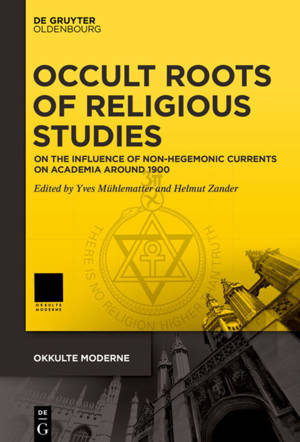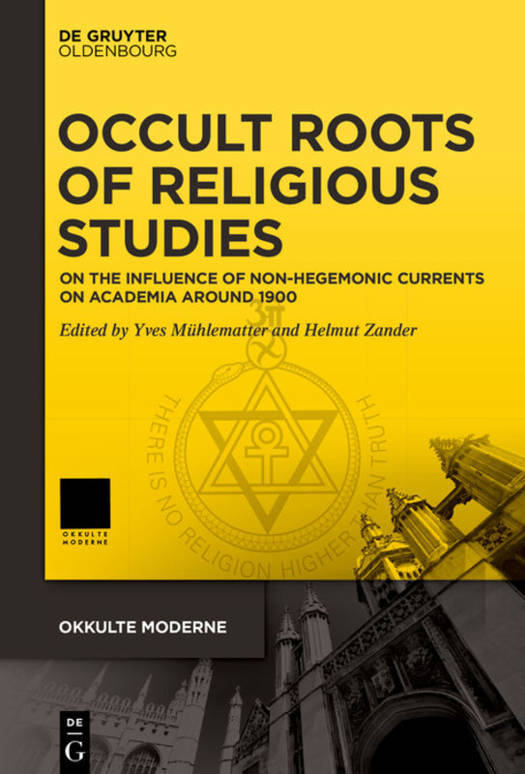
- Afhalen na 1 uur in een winkel met voorraad
- Gratis thuislevering in België vanaf € 30
- Ruim aanbod met 7 miljoen producten
- Afhalen na 1 uur in een winkel met voorraad
- Gratis thuislevering in België vanaf € 30
- Ruim aanbod met 7 miljoen producten
Zoeken
Occult Roots of Religious Studies
On the Influence of Non-Hegemonic Currents on Academia Around 1900
€ 65,95
+ 131 punten
Omschrijving
The historiographers of religious studies have written the history of this discipline primarily as a rationalization of ideological, most prominently theological and phenomenological ideas: first through the establishment of comparative, philological and sociological methods and secondly through the demand for intentional neutrality. This interpretation caused important roots in occult-esoteric traditions to be repressed.
This process of "purification" (Latour) is not to be equated with the origin of the academic studies. De facto, the elimination of idealistic theories took time and only happened later. One example concerning the early entanglement is Tibetology, where many researchers and respected chair holders were influenced by theosophical ideas or were even members of the Theosophical Society. Similarly, the emergence of comparatistics cannot be understood without taking into account perennialist ideas of esoteric provenance, which hold that all religions have a common origin.
In this perspective, it is not only the history of religious studies which must be revisited, but also the partial shaping of religious studies by these traditions, insofar as it saw itself as a counter-model to occult ideas.
This process of "purification" (Latour) is not to be equated with the origin of the academic studies. De facto, the elimination of idealistic theories took time and only happened later. One example concerning the early entanglement is Tibetology, where many researchers and respected chair holders were influenced by theosophical ideas or were even members of the Theosophical Society. Similarly, the emergence of comparatistics cannot be understood without taking into account perennialist ideas of esoteric provenance, which hold that all religions have a common origin.
In this perspective, it is not only the history of religious studies which must be revisited, but also the partial shaping of religious studies by these traditions, insofar as it saw itself as a counter-model to occult ideas.
Specificaties
Betrokkenen
- Uitgeverij:
Inhoud
- Aantal bladzijden:
- 295
- Taal:
- Engels
- Reeks:
- Reeksnummer:
- nr. 4
Eigenschappen
- Productcode (EAN):
- 9783110660173
- Verschijningsdatum:
- 8/06/2021
- Uitvoering:
- Hardcover
- Formaat:
- Genaaid
- Afmetingen:
- 152 mm x 231 mm
- Gewicht:
- 498 g

Alleen bij Standaard Boekhandel
+ 131 punten op je klantenkaart van Standaard Boekhandel
Beoordelingen
We publiceren alleen reviews die voldoen aan de voorwaarden voor reviews. Bekijk onze voorwaarden voor reviews.






